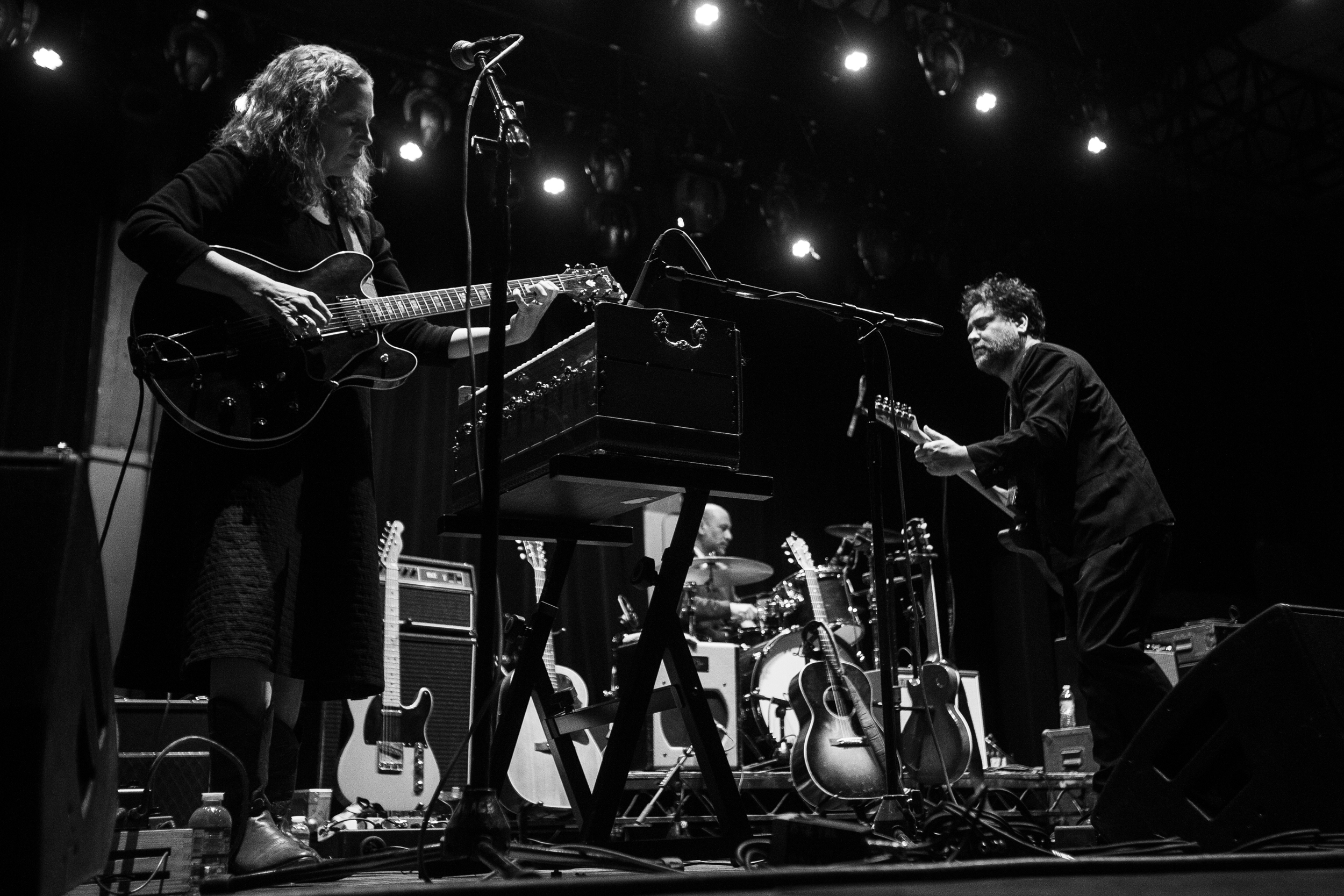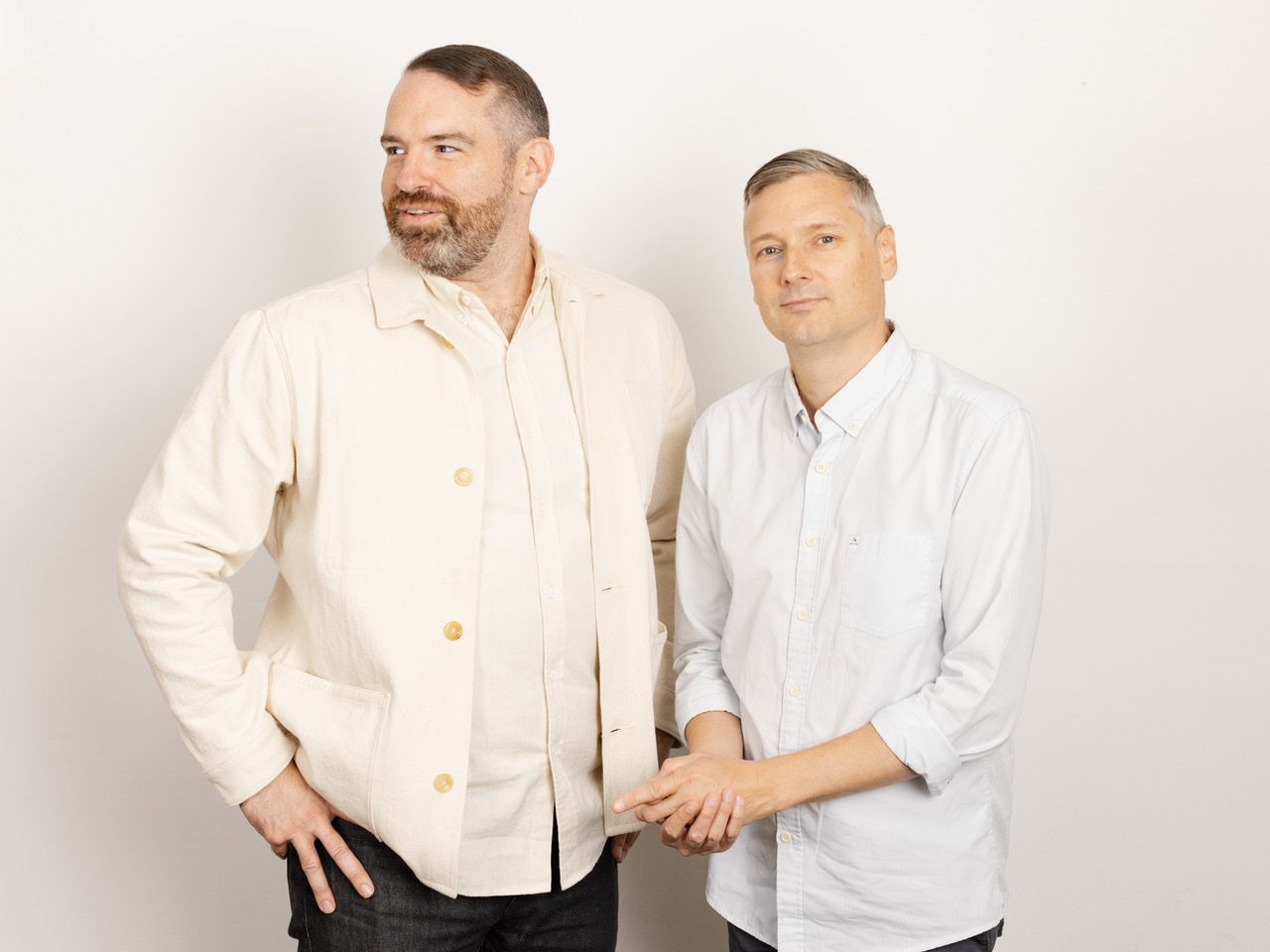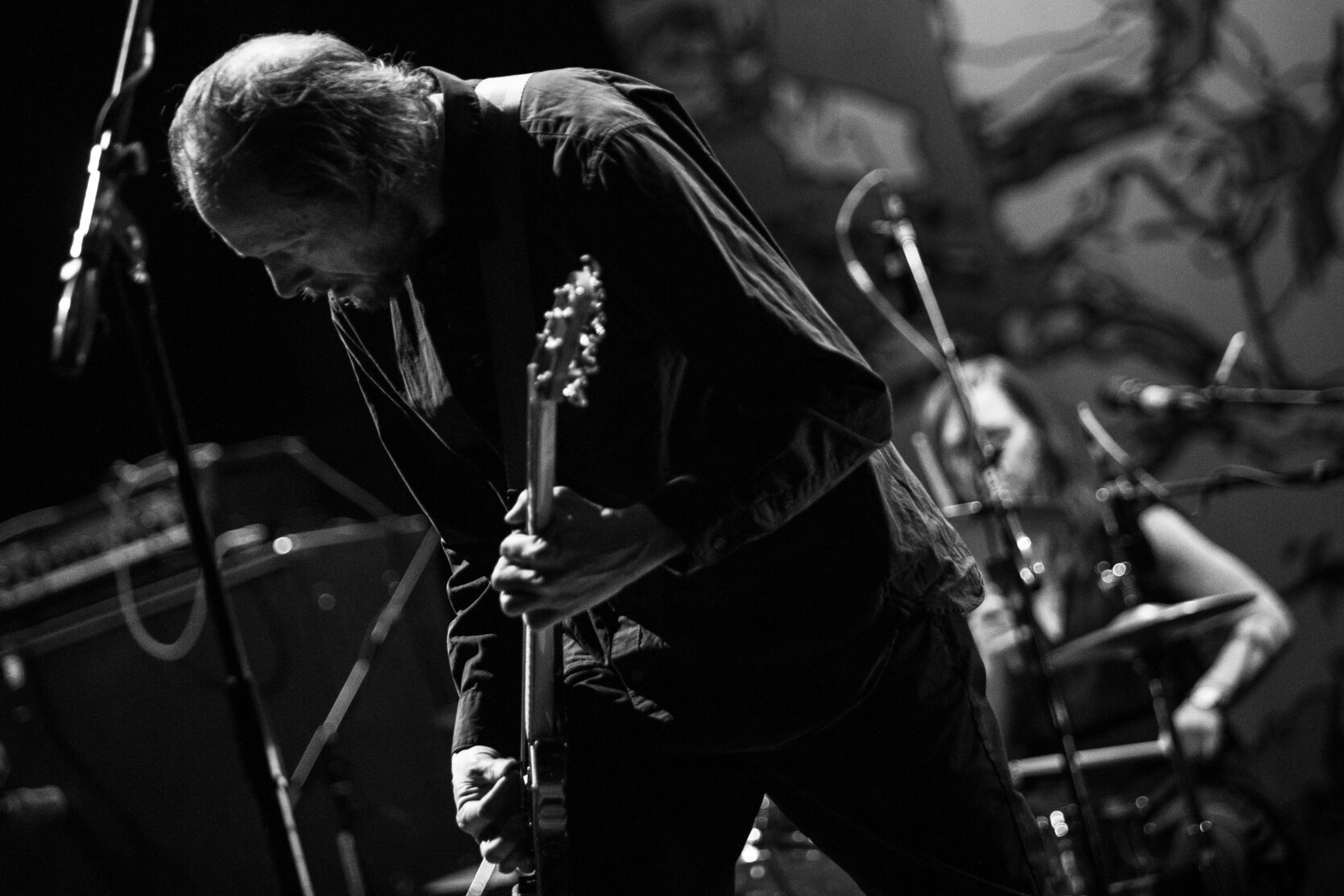Los Angeles’ Palace Theatre used to be one of many exquisite shrines to cinema in downtown Los Angeles, but these days it looks every bit of its 112 years. For one thing, the “P” in “Palace” on its marquee is no longer illuminated, and the surrounding neighborhood feels, well, gritty. But sometimes you have to dig well below the surface to find the good stuff, and last weekend at the Palace, what’s old was gloriously new again during the Numero Group label’s 20th anniversary celebration.
Since its inception, Numero has celebrated numerous unsung scenes and sounds with lavish, oft-Grammy-nominated compilations and boxed sets, from ’70s New York proto-punk to vintage Minneapolis funk and private-pressed, regional soul and R&B straight from the proverbial basement. Label co-founders Ken Shipley and Rob Sevier have even been known to get in a car and drive across America to try and find the long-lost artists behind this obscure but vital music.
But at the two-night anniversary bash held on Feb. 18-19, the label reveled in an era particularly close to the hearts of the founders who are helping resurrect it: 10 cult-favorite artists that made small but mighty marks amid the fertile American underground rock scene of the 1990s and then largely disappeared — until now.
With a few exceptions, these 10 bands aren’t all that similar musically, even though they overlapped frequently on the road at the time and in some cases even shared some members. Instead, the common denominator between them is Numero Group, which has lovingly re-pressed, reissued, and re-introduced their music not only to devoted fans but also eager listeners who weren’t even alive when these acts were enjoying their ’90s salad days. To be sure, many of them are arguably more widely known now than they were at the height of the decade’s alt-rock boom.
Ted Leo’s pre-Pharmacists band Chisel, for instance, hadn’t played in 26 years prior to a Feb. 16 pre-Numero Twenty warmup gig in Chicago. Olympia, Wa.-reared Unwound is out on its first tour since 2002, where it is playing the largest headlining shows of its doggedly DIY career. The same is true for influential rock outfits Codeine, which split in 1994 and briefly reunited in 2012, and Karate, which vanished in 2005 before getting back together last year.
Numero Twenty also featured highly anticipated reunion appearances from the Hated, Ida, Tsunami, Everyone Asked About You, Rex, and Ui, who have been either absent from or buried within the umpteen streaming services that were non-existent three decades ago. Without a willing steward such as Numero gently prodding them back to life, these bands would have undoubtedly fallen further into obscurity at a time when so much music discovery is fueled by DSPs and the ongoing excavation of indie rock seems, well, boundless.
Selling nostalgia to 40-something, crate-digging nerds is one thing, but it’s quite another to attract the scores of young fans in the crowd to whom this music clearly holds just as special of a place. “There’s still a lot to unearth from that time period,” says Tom Mullen, who chronicles the branches and tributaries of this scene through his popular Washed Up Emo podcast. “In an age of convenience, you still need curation. The quest to find what’s lost is never-ending, so it was fitting to see all these bands together again on stage under one roof with a curator like Numero Group.”
“The thread through a lot of this stuff is artists whose labels have gone defunct and really need that next path laid out in front of them,” Numero Group co-founder Ken Shipley tells SPIN of the Numero Twenty bands, adding that he didn’t truly realize the demand for this type of music until he saw out-of-print vinyl copies of Karate’s ’90s albums selling for $400. “We’re a full-service record label that just happens to work with bands from the past, and we’ve built a system that’s really good at helping people create some long-term value from things they did when they were in their 20s.”
Every artist interviewed for this story has a similar version of an anecdote about Shipley’s persistence in courting them to join the Numero Group roster. In many cases, these conversations led to bands scouring their long-ignored archives for unreleased material and then inevitably reuniting to tour or make new music — a turn of events that has often been quite surprising given the circumstances.
“Ken emailed me in 2010 and literally was like, ‘Codeine vinyl! What do you say?’ I said, ‘Well, Sub Pop owns those recordings forever, so I don’t know how that would work,'” Codeine drummer Chris Brokaw recalls of what eventually led to the band’s 2012 Numero boxed set When I See the Sun. “I wrote Sub Pop and told them Numero was interested in doing vinyl, and they basically said, ‘knock yourselves out.’ Numero came at it as legitimate super-fans, and they really wanted to hear all the unreleased material we had. All three of us were so flattered and taken aback by their enthusiasm. The reunion shows we played in 2012 were 100% because Numero did those reissues.”
It happened in similar fashion for the peculiar instrumental funk trio Ui, a band featuring former New Yorker music critic Sasha Frere-Jones whose music had never been on streaming services until a couple of months ago. The group released three albums on the long-shuttered Southern Records from 1990 to 2003, and despite signal boosts from and support tours with simpatico acts such as Tortoise and Stereolab, it wasn’t uncommon for Ui to play in front of a few dozen people in venues such as a converted meat locker in New York in the late ’90s.
“I’m very moved by the fact that there’s more than one person out there trying to tell people about the band. I’m not used to that at all,” Frere-Jones tells SPIN. “I think I felt goofy about promoting it when we were younger. In the beginning of our first Zoom call, Ken said, ‘Nobody knows who you guys are.’ I was like, ‘Good to meet you, Ken!’ It was funny. I think he’s 100% right, and that’s kind of great for us. People fall in love with you the first time, and that version of you is fixed. We don’t have that problem.”
For artists whose catalogs were already on DSPs, like Tsunami, the spunky, D.C.-area group led by Jenny Toomey and Kristin Thomson from 1990-1998, Numero has been a crucial collaborator in helping capitalize on modern digital consumption patterns. “It’s an entirely different ecosystem with search engine terms and social media, and Numero really understands it,” Thomson tells SPIN. “Numero reached out almost two years ago to ask about reissues. We’re very punk rock and we’re pretty nervous about signing anything with anyone, but a bunch of people we trust, love, and have worked with started putting records out with Numero and having a great experience,” adds Toomey. “It made us feel comfortable to talk to Dan Littleton about what went into making the Hated reissue happen, or Geoff Farina about Karate.”

That sense of community so integral to the spread of American underground music was palpable inside the Palace Theatre last weekend (to wit: members of Tsunami and Ida are already talking about touring together, and Karate and Rex just teamed up for a show in San Francisco. Low’s Alan Sparhawk came just to hang out and see old friends, following the November 2022 death of his wife and bandmate Mimi Parker). It culminated with Unwound’s fantastic headlining performance on Feb. 18, its disorienting heaviness and jagged, two-guitar interplay inspiring moshing and crowd-surfing amid the venue’s small standing area. Band members tossed bouquets of flowers into the crowd at set’s end, perhaps a welcome far cry from the grunge-era college town basements in which Unwound once honed its chops.
For two days, there was a genuine sense of awe by both artists and attendees at the assembled talent, and the Numero merch stand did robust business even when the headliners were on stage. By the time Sevier was DJing rare gems from Johnson Hawkins Tatum & Durr, Swithold, and Trinikas at the upstairs afterparty while Shipley was getting busy on the dance floor, the Sister Midnight- and Ground Control Touring-produced event felt like nothing less than the best indie rock bar mitzvah ever.

Asked how Numero has been able to get these artists in front of so many new eyes and ears, Shipley and Sevier point to the label’s strength in securing film and TV placements, particularly a sync of Codeine’s cover of Joy Division’s “Atmosphere” in a 2017 episode of 13 Reasons Why. But sometimes it just happens organically, like when the song “Inside Out” by the once barely known, Numero-reissued ’90s band Duster became suddenly, and very randomly, massive on TikTok in 2020. Duster now has 3.5 million monthly listeners on Spotify, which would have been an unfathomable number in the late ’90s and further reinforces the idea that a second life can happen at any time.
“There is an entirely new and younger audience that’s discovering this stuff on their own, be it on YouTube or Spotify. We’re happy recipients of that uptick in interest, but the ‘90s in a lot of ways are just the ‘60s of now,” Shipley opines. “When we were kids, there was a Doors movie. They sold Led Zeppelin shirts everywhere. We were paying attention, but we weren’t even born when those things were happening. That same thing is happening again because there’s always going to be cool, underground acts that get championed well after their time.”
Noting that “all the bands we actually sound like are 30 years older or 20 years younger,” Frere-Jones is hoping this newfound listener open-mindedness will work on Ui’s behalf circa 2023.
“We can get put into any of a million different little categories, and people on TikTok who love these weird instrumental bands might love us too,” he says. “That’s a much bigger audience than we had in the ‘90s, when people were frankly looking for something different. To put it in a slightly backward way, I think a young Stereolab and Tortoise fan would have an easier time with us now, whereas in the ‘90s, a lot of those people were like, ‘What the fuck is this?’ Kids now are much more open-minded and are used to listening to anything.”
One such listener is Eli, who was perched at the lip of the stage during Unwound’s set and was joyously singing along to every word. This shy, 29-year-old American software engineer flew solo from his adopted home in Tokyo for the shows after discovering Unwound in 2015, more than a decade after the band dissolved. “Having a label that will repress your music is one of the reasons why these bands are embraced by younger people,” he says, pointing to Numero’s extensive reissue campaigns with Unwound in recent years and the work Polyvinyl Records did to keep midwest emo favorites Braid’s music in print during the latter’s extensive hiatus. “It keeps the bands alive, even if they broke up two decades ago.”
For Sevier, the quiet, one-man music encyclopedia who serves as the perfect foil for Shipley’s more naturally gregarious personality, Numero Twenty and its attendant reissues are best understood as “a sign that we’re growing old very quickly because our contemporaries are now given the same treatment as what we were giving to a completely different generation. The greatest pride I take in this job is making our partners happy, so this is all just an extension of it. Creating a context in which our artists can flourish is why we get up in the morning.”





